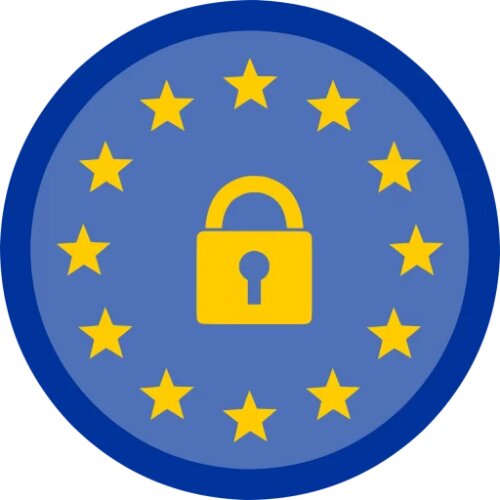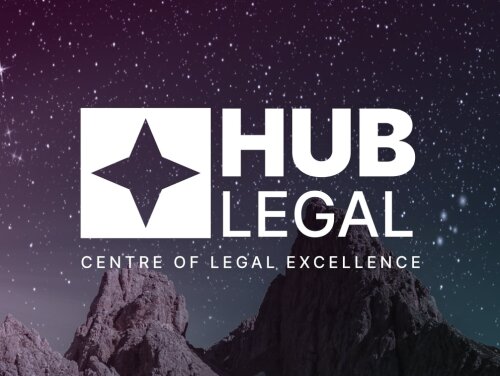Best Mining Law Lawyers in Vilnius
Share your needs with us, get contacted by law firms.
Free. Takes 2 min.
List of the best lawyers in Vilnius, Republic of Lithuania
About Mining Law in Vilnius, Republic of Lithuania
Mining Law in Vilnius, Republic of Lithuania, is a specialized area of law focused on regulating mining activities, including the exploration, extraction, and processing of minerals and other geological resources. It establishes the legal framework for the sustainable use and protection of natural resources while safeguarding public interests and the environment. Mining Law governs the issuance of licenses, compliance with safety and environmental standards, land use rights, and obligations of various stakeholders involved in mining operations. The city of Vilnius, as the capital, provides administrative oversight in these processes, ensuring that all mining activities within its jurisdiction adhere to both Lithuanian national law and applicable European Union regulations.
Why You May Need a Lawyer
Mining activities are subject to complex legal regulations, which can be challenging to navigate. Here are some common situations where you may require legal help in Mining Law:
- Obtaining or renewing exploration or extraction licenses
- Negotiating land use agreements with private owners or the government
- Addressing environmental compliance or facing regulatory investigations
- Resolving disputes with contractors, suppliers, or governmental bodies
- Understanding liabilities related to environmental damage or land rehabilitation
- Ensuring compliance with occupational health and safety standards
- Managing mergers, acquisitions, or joint ventures involving mining entities
A lawyer specializing in Mining Law can provide invaluable assistance in protecting your interests, ensuring compliance with ever-changing laws, and representing you in administrative or judicial proceedings.
Local Laws Overview
The legal framework governing mining activities in Vilnius is primarily established by the Lithuanian Law on Subsoil and associated regulations. Key aspects include:
- Licensing and Permits: All mineral exploration and extraction require state-issued licenses. The process involves environmental assessments and public consultation.
- Environmental Protection: Mining operations must adhere to strict environmental standards, including land reclamation, pollution prevention, and habitat protection.
- Land Use and Property Rights: Mining may occur on public or private land, but clear rights and compensations must be agreed upon. The law also details expropriation processes when necessary.
- Health and Safety: Mining companies must implement safety protocols and are regularly inspected to protect workers.
- Royalties and Fees: The state is entitled to royalties or fees from extracted resources, calculated based on the type and volume of minerals.
- Inspections and Enforcement: Governmental agencies have wide authority to inspect mining operations and enforce compliance, including the power to suspend activities for violations.
- Dispute Resolution: Disputes arising from mining activities may be resolved through administrative proceedings or the Lithuanian court system.
Frequently Asked Questions
What licenses are needed to start mining in Vilnius?
You must obtain an exploration license before investigating potential sites. If viable resources are found, a separate extraction license is required. Both involve a formal application, public participation, and approval from local and national authorities.
Is environmental impact assessment mandatory for mining?
Yes, environmental impact assessments are generally required before any significant mining activity can begin. These studies evaluate the potential effects of the project and propose measures to minimize harm.
Who owns the minerals found beneath private land?
In Lithuania, subsurface minerals are property of the state, regardless of surface land ownership. Surface owners may be entitled to compensation for disruption or land use.
Can foreign investors participate in mining activities?
Yes, foreign individuals and companies may acquire mining rights in Lithuania, provided they comply with all licensing, regulatory, and corporate requirements established by law.
What are the main environmental obligations of mining companies?
Mining companies must adhere to all relevant environmental laws, including waste management, water and air quality standards, land restoration, and continuous monitoring throughout the project lifecycle.
How are royalties and taxes on mineral resources calculated?
Royalties and taxes depend on the type and amount of extracted resources. The rates are set by the government and are regularly updated to reflect market conditions and policy changes.
What happens if mining operations damage the environment?
Operators are legally responsible for any environmental harm caused by their activities. They can face fines, orders to restore the affected area, and even criminal liability for severe violations.
Can mining rights be transferred or sold?
Mining rights can be transferred or sold to other entities, subject to approval by governmental authorities and compliance with all existing legal and contractual obligations.
What role do municipalities like Vilnius play in permitting?
Municipalities participate in the permitting process by reviewing applications, organizing public consultations, and ensuring that mining activities align with local development plans and zoning regulations.
How are disputes with the government or landowners resolved?
Disputes can be addressed through negotiation, mediation, or formal legal proceedings in administrative or civil courts, depending on the nature of the conflict.
Additional Resources
If you need more information or assistance, consider reaching out to the following organizations and government bodies:
- Ministry of Environment of the Republic of Lithuania - oversees mineral resource management and environmental protection
- State Geological Survey - responsible for geological research and issuing mining licenses
- Lithuanian Chamber of Commerce, Industry, and Crafts - provides support for business-related legal queries
- Environmental Protection Department (Aplinkos apsaugos departamentas) - monitors compliance and conducts inspections of mining operations
- Local law firms specializing in natural resources and Mining Law
Next Steps
If you require legal assistance in Mining Law in Vilnius, Republic of Lithuania, begin by identifying your specific needs, such as obtaining a license, resolving a dispute, or ensuring compliance. Gather relevant documents and details about your case. Consider scheduling a consultation with an experienced Mining Law attorney or legal advisor who is familiar with local regulations. They can help explain your rights, outline available options, and guide you through the required steps or legal proceedings. Additionally, it is advisable to stay informed through official governmental resources or professional organizations to keep up with regulatory changes affecting the mining sector.
Lawzana helps you find the best lawyers and law firms in Vilnius through a curated and pre-screened list of qualified legal professionals. Our platform offers rankings and detailed profiles of attorneys and law firms, allowing you to compare based on practice areas, including Mining Law, experience, and client feedback.
Each profile includes a description of the firm's areas of practice, client reviews, team members and partners, year of establishment, spoken languages, office locations, contact information, social media presence, and any published articles or resources. Most firms on our platform speak English and are experienced in both local and international legal matters.
Get a quote from top-rated law firms in Vilnius, Republic of Lithuania — quickly, securely, and without unnecessary hassle.
Disclaimer:
The information provided on this page is for general informational purposes only and does not constitute legal advice. While we strive to ensure the accuracy and relevance of the content, legal information may change over time, and interpretations of the law can vary. You should always consult with a qualified legal professional for advice specific to your situation.
We disclaim all liability for actions taken or not taken based on the content of this page. If you believe any information is incorrect or outdated, please contact us, and we will review and update it where appropriate.












